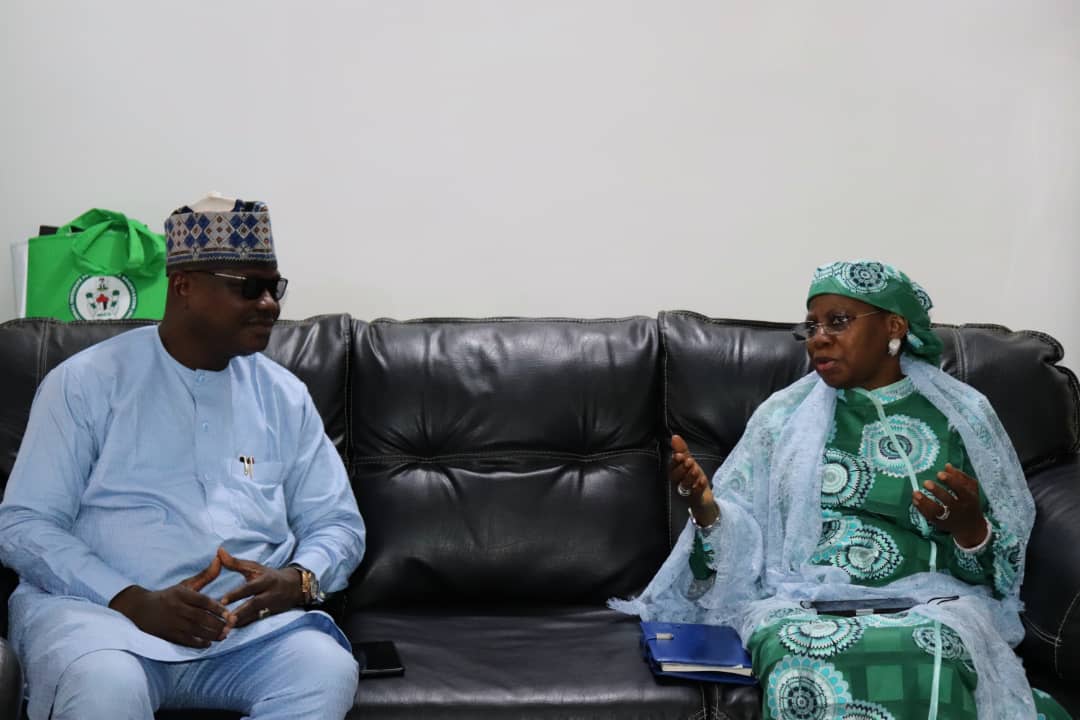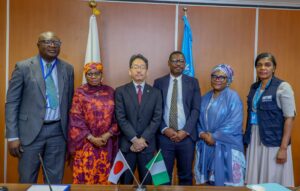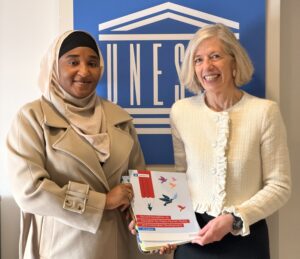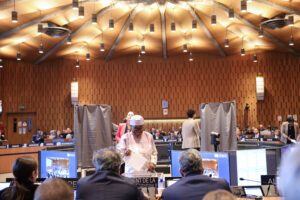
The Ambassador and Permanent Delegate of Nigeria to the United Nations Educational, Scientific and Cultural Organisation (UNESCO), Dr. Hajo Sani on Tuesday, January 25, 2022, said she is willing to give full support towards the inscription of Nigeria’s cultural heritages on UNESCO’s representative list of Intangible Cultural Heritage of Humanity.
Dr. Sani who made this known during a courtesy visit to the Executive Secretary/CEO, National Institute for Cultural Orientation (NICO), Ado Muhammed Yahuza said there is need to identify and synergize with the Institute which is Nigeria’s focal agency on cultural matters to UNESCO and fashion out best ways to present the nation’s cultural elements for inscription.
Her words “This is something that we actually need to put our heads together and be able to come up with what is acceptable. Nigeria as a country in Africa should always take the lead. If smaller countries can scale through with their submissions, then we need to sit up and package our elements in line with the required procedures so that we can get them inscribed”.
“This time around, let us take up the opportunity and package everything we need to package. The Durbar is another element that we need to look into seriously. Our submission should not just be on one element but we can have even two or three elements and you will be surprised that all the elements submitted can scale through”.
On his part, the Executive Secretary of NICO, Ado Muhammed Yahuza disclosed that NICO as a focal agency has done a lot towards inscribing Nigerian elements of intangible cultural heritage on UNESCO’s list, the recent which is the Kwahir Puppetry Theatre of the Tiv people of Benue State.
He said already, the Institute is working on presenting three cultural elements to include the multi-cultural element of traditional midwifery; Sango Festival and the Durbar Festival.
Specifically speaking on Durbar, the ES had this to say “We have already done a lot on the Durbar. We did the research and went there but when they got the clips, we discovered some missing links and we had to go back and did some interviews in hausa, which was one of the major requirements that the interviews should be in indigenous language and we interviewed the Emir and some of his principal officers in Hausa”
He said the Institute will do everything possible to ensure that we get it right this time and one way is to ensure there is proper data of all inscribed elements so that whenever Nigeria is to present one, we can always look back at what gave us success in the past.
In company of the Executive Secretary to receive the Permanent Delegate was Mr. Alex Omijie (Director, Orientation and Cultural Affairs); and Mr. Michael Ekoko (Director, Research & Documentation).
[ngg src=”galleries” ids=”18″ display=”basic_slideshow”]




